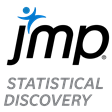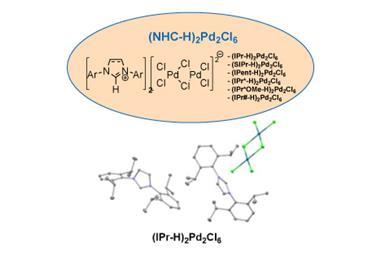Data mining brings a range of benefits to R&D processes, especially if analysis happens at the right time
Many organisations wait too long to start analysing the data they collect. This may be because they are investing in significant data projects or joining together disparate data sources, which can be a time-consuming and resource-heavy challenge. It may be because there is a disconnect between subject matter experts – the people who generate and understand the data – and the data scientists who will be tasked with analysing it, creating inefficiency and delay in generating insight. How do successful organisations overcome these challenges and develop the right strategy for building analytic excellence?
You’re not creating value until you start analysing and visualising that data
Per Vase, NNE managing consultant
It can be as simple as making a start. Putting data analytics capabilities into the hands of people who understand the subject matter often means R&D experts and engineers find robust solutions to problems more quickly. When they have the tools to communicate these solutions persuasively to colleagues, that can rapidly speed up decision-making and reduce time to innovation.

The benefits of making a start
Per Vase, a managing consultant at pharmaceutical engineering company NNE, has seen many organisations delay getting value from their data by focusing too much effort on collecting and combining data. He encourages his clients to conduct data analytics in parallel with data collection, and make it accessible. ‘You’re not creating any value until you start analysing and visualising that data and the results so that people can make decisions,’ he told participants to a roundtable event at the RSC’s Burlington House, London earlier this year.
Learning through data analysis and statistical modelling is a continual cycle. Data analytics often highlight the data you should be collecting – so by starting data analytics sooner and avoiding the paralysis of over-planning, organisations can reap the rewards of analytic insight more rapidly. Analysis can provide valuable feedback on how to collect, combine and contextualise data. It can help identify whether the relevant variables are being measured or whether some of the variable definitions have changed over time, highlighting inconsistencies.
People feel they must have perfect data before they can start analysing but I say, dive in and try it
Julia O’Neill, founder and principal consultant at Direxa Consulting
Incorporating data analytics into subject matter knowledge means that learning is incremental. People can get started quickly, achieve results and experience the motivation to continue developing. This approach encourages a culture of ‘learning by doing’ and motivates scientists and engineers to explore new possibilities.
Influencing your organisation to adopt an analytic strategy
By diving in and making a start, it is easier to demonstrate real results. Putting the right tools in the hands of domain experts means organisations can gain insights more rapidly and work more productively with the same resources. The reality for many R&D teams is that there is more work than time available, resources are stretched, and outcomes and timeframes can be unpredictable. For new projects, there may be a limit to what can be learnt from prior data, in which case design of experiments (DoE) is critical for realising the benefits of data analytics quickly. It helps businesses make better decisions faster and meet project milestones more predictably. This in turn helps to reduce stress levels on individuals, leading to more productive and efficient teams.

Direxa Consulting founder and principal consultant Julia O’Neill has more than 30 years’ experience using statistics and chemical engineering to solve problems in chemistry, vaccines, biologics and pharmaceuticals. For her, statistics play an important role in trying to bring down the cost of medicines. O’Neill has seen how introducing DoE can help change an organisation’s approach. ‘I think one of the things that holds people back is they feel like they have to get it perfect before they can start. I’d say, dive in and try it. You can start fairly small and simple. Because you have to put in the upfront planning, people perceive it as being more work and more effort. But in the end, it saves so much time,’ says O’Neill in the webinar Bridging statistics and chemical engineering for biotech and pharma.
Demonstrating the benefits of an analytics approach helps persuade an organisation that they can achieve real time savings and cost reductions if they embrace new techniques. O’Neill cites dimensionality reduction in biopharmaceuticals development as a powerful example. ‘When we’re doing this with a group of scientists, they know the context. They know what these properties represent and they may see connections immediately,’ she says. When certain issues have been a challenge for a long time, data analytics can help a team form a strategy that everyone supports. ‘I have seen [it] be an incredible consensus builder because what people see is this ordered ranking, which includes all of their hypotheses but puts them in priority. And they can see, if theirs showed up at number 15, well, maybe it’s time to think again,’ O’Neill adds.
Engineers can question their own thinking and spot something they wouldn’t see in a static model
Dan Middleton, chief of digital manufacturing at Rolls-Royce turbines unit
At an individual level, DoE and data analytics provide greater predictability, reduce stress and allow you to get the job done. At an organisational level, this translates to increased innovation rates and rapid time to market.
Exploring, analysing and sharing data effectively
Enabling dynamic, science-driven discussion is far more powerful when you can interact with the data and engage stakeholders across an organisation. When data analysis is done in a dynamic way, an organisation speeds up its decision-making.
Dan Middleton, chief of digital manufacturing at Rolls-Royce turbines unit, finds interaction with data analytics essential. ‘That’s where we’re starting to see the power. Being able to interact with the data means engineers are starting to question their own thinking and say “I’ve spotted something here that I wouldn’t have seen in a static model”,’ said Middleton during the roundtable. Sharing data analytics with suppliers has improved insight into the supply chain and encouraged better collaboration. By putting data analytics in the hands of subject matter experts, individuals are empowered to deliver value quickly. It can also protect organisations from making wrong decisions that build in cost and delay further down the line.
Without optimising experiments you’re leaving a lot of money on the table
Cy Wegman, consultant and former engineer in the consumer packaged goods industry
In the webinar How P&G saved millions and improved quality with analytics, consultant and former engineer in the consumer packaged goods industry Cy Wegman says that without optimising experiments ‘you’re leaving a lot of money on the table’.
Wegman encourages scientists and engineers to add data analytics to their toolkit and develop their professional capabilities. ‘It gives so much more flexibility and capability… you don’t have to be a statistical genius to do these things,’ he says in the webinar.
Using data analytics tools specifically designed for scientists and engineers – who don’t want to learn a new language or get distracted by syntax but do want to stay focused on the problem they are trying to solve – leads to insight being gained more rapidly.
Building a culture of analytic excellence
With the right tools, scientists and engineers can leverage data for analytics and DoE, equipping R&D and manufacturing teams with the capabilities they need to gain insights more rapidly. Discovering the power of data analytics can motivate scientists and engineers to develop professionally – encouraging a ‘learn as you go’ approach – refining techniques to drive even greater productivity and efficiency.

Within minutes, most scientists and engineers can make a start with data analytics and begin learning incrementally, solving problems as they progress and discovering more about what they can do with data. Whether accessing data from various sources more easily, using quick, reliable data preparation tools or performing statistical analyses to optimise experiments, data analytics speeds up the time to insight and enables data-driven decision-making across teams, driving analytic excellence across whole organisations.
Join JMP for a discussion about inspiring a shared vision of analytics usage at your organisation and the practical considerations for making data-driven culture a reality. Register for the upcoming online seminar Building a culture of analytic excellence streaming on February 6, 2020: www.jmp.com/culture


















No comments yet